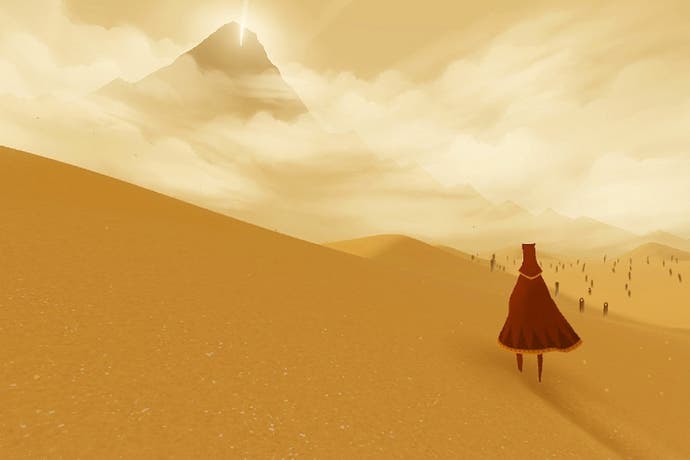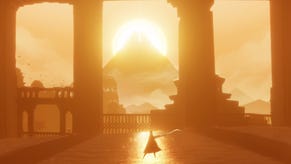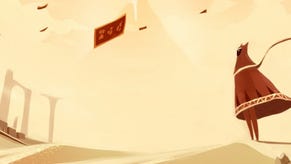Games of 2012: Journey
The road less travelled.
"They're sad because everyone is dead."
It's been a stellar year for games, all things considered, particularly in the indie arena. Yet picking my top gaming moment from the last 12 months is incredibly easy. It came when my six-year-old daughter walked in on me playing thatgamecompany's achingly beautiful Journey. She sat down next to me, asked for the joypad and - after sliding down some sand dunes and fluttering around in the air - offered the insight above.
Much like Journey itself, it was a simple moment but an incredibly powerful one, laying bare the foolishness of the entire "are games art?" debate. Of course they are. Journey is only the latest game to prove it, but it's also the most compelling. My daughter's reaction was immediate and honest, an instinctive emotional response to creative stimulus painstakingly constructed by Jenova Chen and his team thousands of miles away. What is that, if not art?
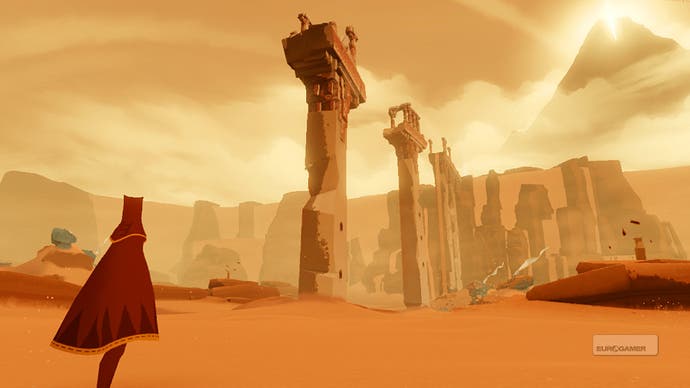
What impresses me most about Journey is that its artfulness soaks deep into every layer. On the surface, yes, it's absolutely gorgeous. One thing that games do exceptionally well is give us a sense of place and the freedom to explore and experience that place. At its heart, that's the driving force behind Journey. It offers a shifting, alluring landscape and then makes travelling through it a tactile joy.
Was there a gameplay mechanic more lovely than that granular, halting slide down the side of a dune? It's a movement you can feel even through the cold interface of a joypad. Is there a game that better captures the intoxicating dreamlike weightlessness of flight? I don't think so. Simply moving in Journey's world - running, walking, jumping, gliding - is an end in itself. It's a world with no explicit goals and no strict rules, yet it makes perfect sense. We progress because we need to, because there's something primal that compels us to see what's over the horizon, not because there's a great big ugly blob hovering in front of us saying "FOLLOW". Judged purely as a piece of game design, Journey is supremely graceful.
Yet Journey is categorically, undeniably a game. As abstract as it is, it's an experience you play. There's been a tendency in the "games as art" movement to drift so far away from the medium in search of validation that the result ends up undermining its own argument. Head too far down that road and you end up with a digital tableau in which the player is simply a spectator, a work of art that uses the medium of games, rather than a game that is a work of art.
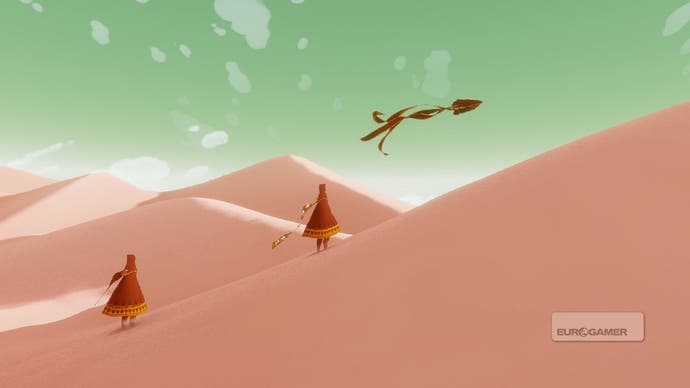
Journey trusts the player. It treats them as a player, not just an audience. It trusts them to explore the world, and most of all it trusts them to find meaning in it. It's not just that Journey is a game, it's that it could only ever work as a game. This is not an experience that could be replicated in film, prose or music. Only by wandering through the dunes yourself, delving into the blue depths of the world and emerging into the dazzling white of the mountain can you truly understand the journey. Only by interacting with the place do you come to understand it. It's a game. It's art. Argument over.
Once we accept that, Journey offers so much more to talk about. It has the most elegant and inspiring implementation of multiplayer ever seen. We can mingle with hundreds in an MMO, or gun down dozens in a single round of any first-person shooter, yet the moment you first see another person in Journey is truly magical. By stripping everything away, the game reminds us just how amazing it is that there's another person in the game with you. By removing all identifying marks, reducing them to a simple avatar, they become even more interesting.
Every time I play - and I've gone back to this game more than pretty much any other this year - I'm still thrilled when I stumble across my randomly assigned companion. I feel elated when we collaborate, wordlessly, on exploring off the beaten path. I feel depressed and rejected if they wander off. I even feel jealous, and a little embarrassed, if their scarf is longer than mine because they're better at exploring. What would Dr Freud say?
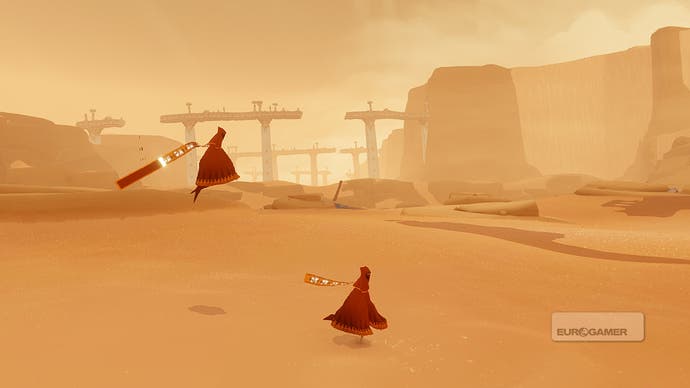
For all the analysis that Journey inspires, it's a game that makes me feel rather than think. I come back to it when I'm in a contemplative mood, just like I'd return to a favourite song to cheer me up, or re-read a beloved book. I come back to it not because I want to beat it, or get to the next level, but because I like spending time in the game. For all the blunt and ugly talk of "gameplay mechanics", I just like the way it makes me feel. It's nourishing.
There have been games this year that have been more fun. There are games that I've spent more time playing. But only one game made me realise just what games are capable of, and reassured me that play, in and of itself, can be as artistically valid as listening to symphony or digesting a heavyweight drama. That it all came wrapped in abstract narrative cloth that could inspire an adult, while still allowing a six-year-old girl to intuitively appreciate the complex melancholy tone, is what makes Journey not just my favourite game of 2012, but one of my favourite games ever.
